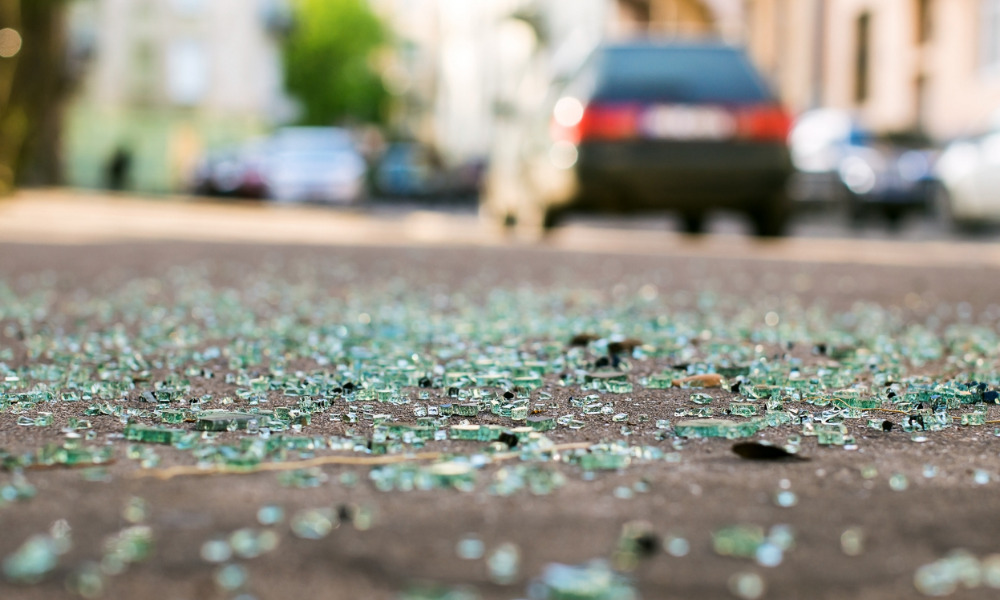
Court declines to add jury instruction explaining statutory deduction, finding it not appropriate

Recent caselaw has shown courts’ willingness to strike jury notices amid the ongoing COVID-19 pandemic to promote access to justice and to ensure that civil actions can timely proceed, said a lawyer focusing exclusively on plaintiffs’ personal injury matters.
The case of Rumney v. Nelson, 2021 ONSC 5632, sheds light on key developing areas of motor vehicle litigation, wrote Brandon Pedersen of McLeish Orlando LLP, alongside Aidan Vining, student-at-law, in a blog post. Courts will be further backlogged as COVID-19-related restrictions continue, the blog post said.
The blog post noted that the case introduced an interesting argument on why the jury should be instructed that the statutory deductible exists. “For now, juries will continue to award damages to injured plaintiffs without the knowledge that they will be automatically reduced,” the blog post said.
In the case, an accident occurred in September 2012 when the defendant’s vehicle struck the plaintiff’s vehicle from behind. The jury notice was served when the pleadings were closed in 2014, while examinations for discovery of the plaintiff took place in January 2015. After the matter was transferred from Toronto to Orangeville in July 2016, a pre-trial occurred in March 2019.
The parties requested a fixed trial date in August 2019, which was granted in September 2019. The parties accepted the first available fixed trial date. Thus, the trial is scheduled to be tried before a judge and jury on Oct. 4, 2021 and is expected to last four weeks. A second pre-trial took place on Oct. 1, 2020.
The plaintiff sought leave to bring a motion asking for an order to exclude certain video surveillance evidence which allegedly unlawfully invaded her privacy and which amounted to an abuse of process that would bring the administration of justice into disrepute. The plaintiff also sought to strike the jury notice and to ensure that the jurors would be instructed regarding the way that the statutory deductible worked so that they would not consider it when determining non-pecuniary damages. The defendants did not oppose leave being granted but opposed the relief sought.
The Superior Court of Justice of Ontario issued orders granting leave for the plaintiff to bring this motion and preventing the defendant from relying on or referring to the eight, ninth and tenth video clips at trial. The court dismissed the motion to include a jury instruction on the statutory deductible and urged the parties to resolve the issue of costs themselves.
The court conditionally struck the jury notice filed by the defendants. Therefore, the matter will move forward as a non-jury trial, unless, when the case is called to trial, it is possible to pick and to conduct a civil jury, whether in the Orangeville courthouse or in a separate facility used for Orangeville trials and jury selection. The court will automatically reinstate the jury notice, without the need for a further motion, if a civil jury is available, or if a judge-alone trial cannot be conducted for whatever reason on the fixed trial date and jury trials are being held when the matter is recalled.
In relation to the video clips, the court found no evidence that the school, place of worship or golf course sought to have the private investigators charged under the Trespass to Property Act. The court said that certain acts assailed by the plaintiff did not amount to unlawful conduct that would bring the administration of justice into disrepute. However, the court excluded the video footage of the plaintiff’s wedding day because the potential prejudice outweighed its probative value.
As regards the jury notice, the court was concerned that, while the matter had not been previously adjourned, it might take another two years to secure a new fixed trial date if the matter is adjourned due to the lack of a jury. The court noted that it already took two years for the parties to get this fixed date.
Lastly, the court held that it was inappropriate to include a jury instruction that explained the statutory deduction and what would happen after they determined a proper quantum of damages, considering the structure of the motor vehicle compensation system and the plain and contextual wording of s.267.5(7) of the Insurance Act. The court said that, if the jury’s role is to decide the quantum without regard to later deductions, it would be unnecessary to instruct the jury on deductions applied after its job has finished.